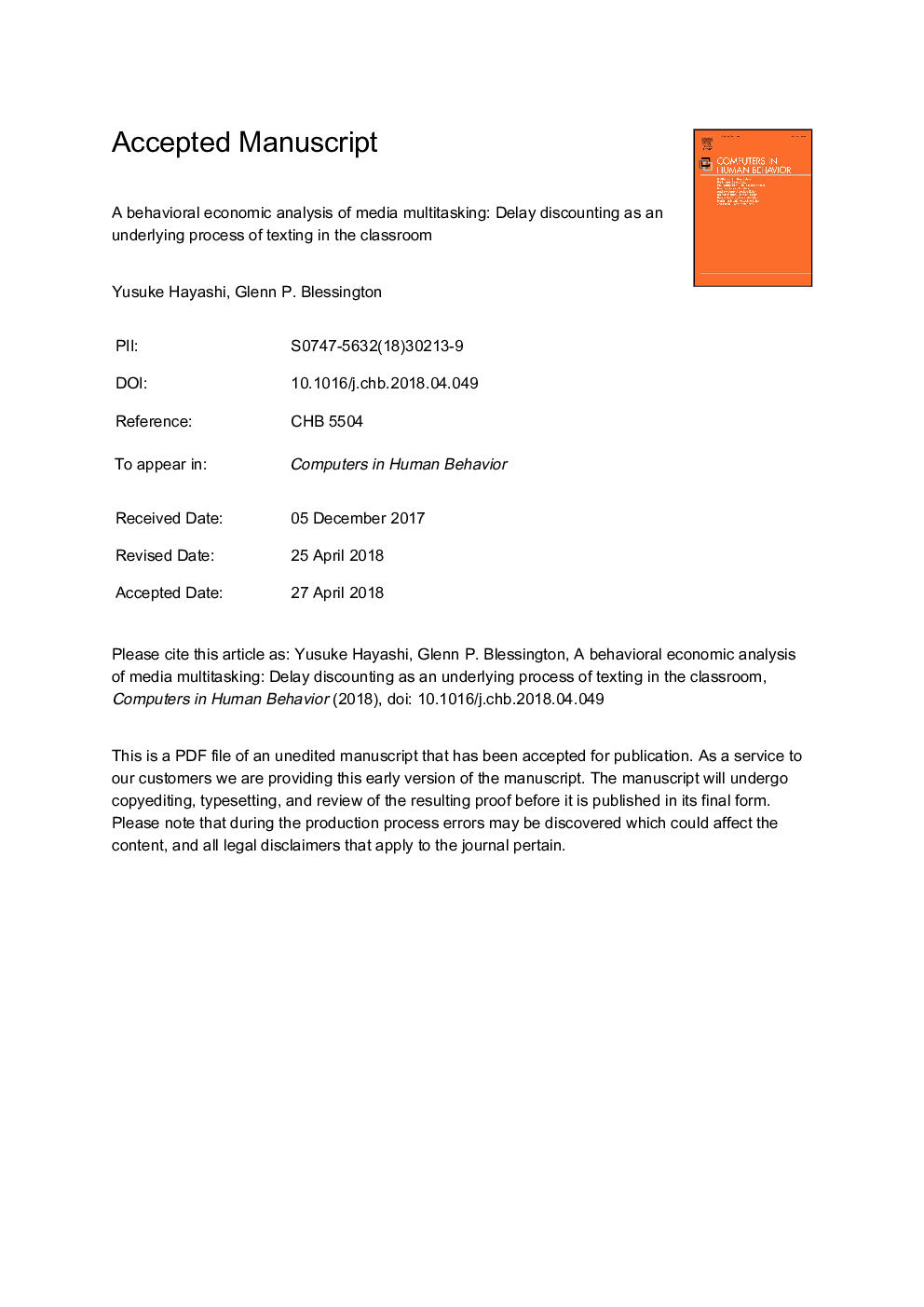| Article ID | Journal | Published Year | Pages | File Type |
|---|---|---|---|---|
| 6835860 | Computers in Human Behavior | 2018 | 49 Pages |
Abstract
The purpose of the present study was to investigate the decision making process underlying texting in the classroom from a behavioral economic perspective. A sample of 136 undergraduate students completed a novel delay-discounting task involving a hypothetical scenario in which, after receiving a text message, they rated their likelihood of replying to the text message immediately versus waiting until the class is over to reply. The scenario presented several delays (ranged from 1 to 75â¯min) under two cell-phone-policy conditions (with and without a policy that banned in-class cell phone use). Participants also completed a behavioral assessment of impulsivity with a delay-discounting task involving hypothetical money and a self-reported assessment of the dispositional trait of impulsivity. The results show that the decrease in the likelihood of waiting to reply as a function of the delay was well described by a hyperboloid delay-discounting function. The rates of discounting were greater for students who self-reported higher frequencies of texting in the classroom as well as under the condition without the cell phone policy. Students who self-reported higher frequencies of texting in the classroom were more impulsive in both behavioral and self-reported measures of impulsivity. These results support the conclusion that the decision making underlying texting in the classroom can be well characterized using the delay-discounting paradigm and that texting in the classroom is fundamentally an impulsive choice, and that a behavioral economic approach is useful for investigating the decision-making process underlying texting in the classroom, and potentially other forms of media multitasking.
Related Topics
Physical Sciences and Engineering
Computer Science
Computer Science Applications
Authors
Yusuke Hayashi, Glenn P. Blessington,
